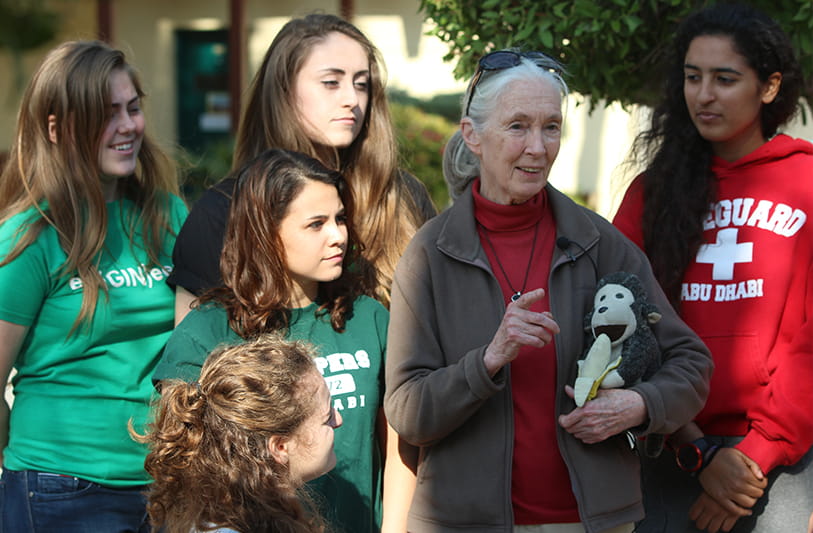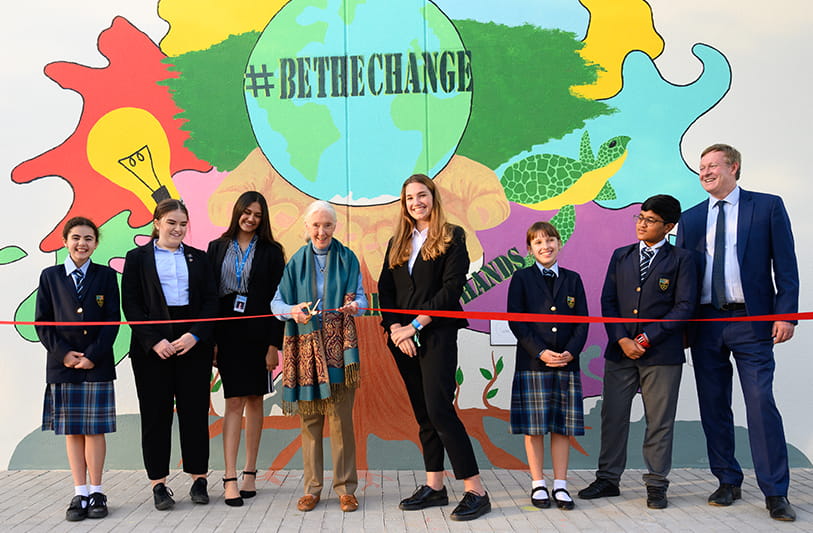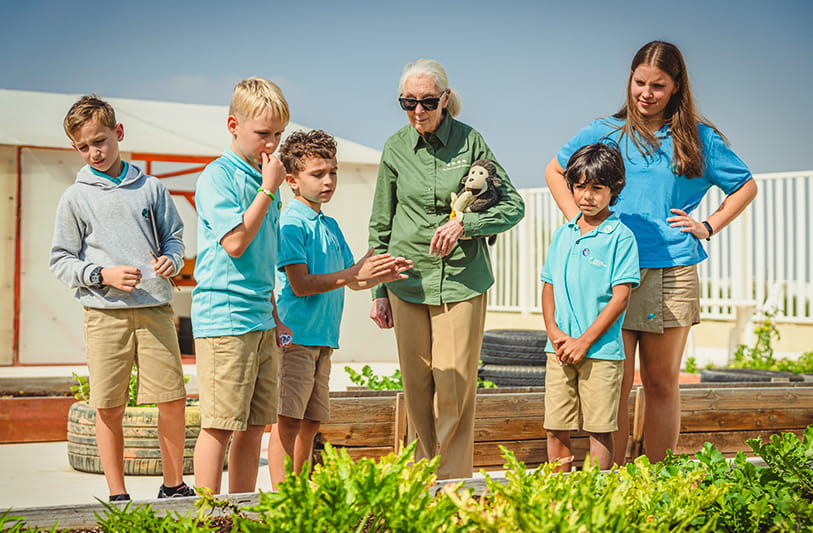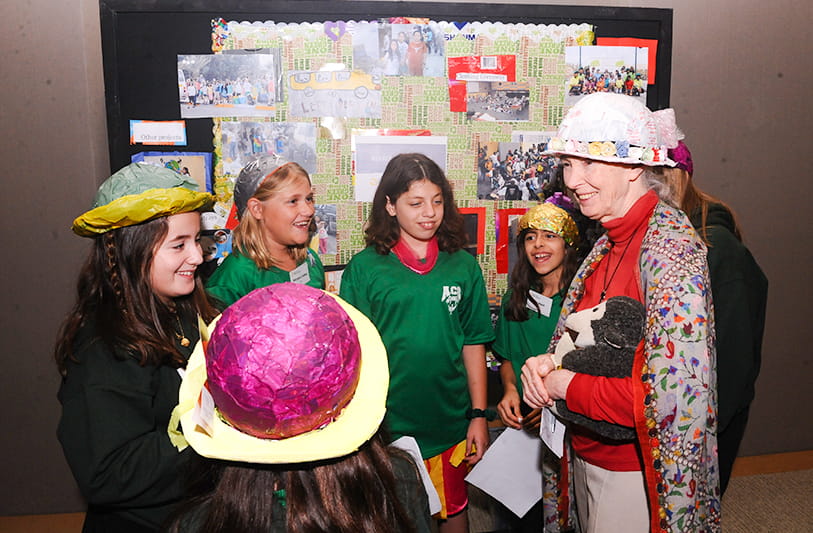By Jane Goodall, founder of the Jane Goodall Institute and the Roots & Shoots programme
I was born 89 years ago. I loved animals and spent hours watching squirrels and birds and insects in our garden. Today many of the birds no longer enchant us with their songs for they are gone, thanks to the use of pesticides and herbicides and development. When I was a child if I left my window open at night when there was a light on, my room was instantly full of moths and other insects -- now I am excited if one moth flies in.
It was when I was studying chimpanzees in Tanzania, spending hours in the rainforest of Gombe National Park, that I came to understand the forest ecosystem. All ecosystems are made up of a complex mix of interdependent plant and animal species, each with a role to play. Every time a species disappears from an ecosystem it becomes weaker – if too many disappear it will collapse.
Thus, it is worrying to learn that biodiversity is declining at rates unprecedented in human history and we are destroying entire areas of the natural world. When I arrived in Gombe it was part of the great belt of forest stretching across equatorial Africa. 20 years later it was only a small island of forest surrounded by bare hills. More people living there than the land could support, cutting down trees to make land for growing crops, or money from timber or charcoal.
By then, throughout the chimpanzee range, forests were being destroyed partly by international companies logging and mining, partly by population growth forcing local communities into the forest with their cattle. And this habitat destruction, together with the illegal wildlife trade, was causing a decline in many forest species of animals and plants across Africa. Including chimpanzees.
Clearly it was important to create more protected areas. And important to alleviate poverty by helping local communities find ways of making a living without destroying their environment.
In 1991 I found young people even then were losing hope. “Our future is being destroyed” they told me. But I believed there was a window of time to start healing the harm we had inflicted if we took action. Thus, JGIs humanitarian and environmental programme for young people, Roots & Shoots (R&S), was born. Today it is in 68 countries and spreading fast in the UAE. It is so important for children (and adults) to realize that we depend on healthy ecosystems for food, water, air – everything.
Sadly so many have become disconnected from the natural world – young people preoccupied with social media and video games and parents with long work hours – modern life comes between us and nature.
Sowing the Seeds of Hope for the Future
Despite these challenges, I remain hopeful. In 1994 the Jane Goodall Institute (JGI) initiated a really successful holistic community led conservation project (Tacare) now in all 6 countries where we work to protect chimpanzees. People now understand that protecting the forest is not only for wildlife but their own future.
Then there is the energy and commitment shown by young people once they understand the problem and are empowered to take action. Groups are planting trees, cleaning up beaches, looking after animals, raising awareness about environmental issues. They are making an impact in their communities and inspiring others to do the same. And as we began R&S in 1991 many members have gone on to become leaders in protecting the environment and its wildlife.
The theme for 2023 International Day for Biological Diversity is “From Agreement to Action: Build Back Biodiversity.” We must raise awareness, especially in those countries that are rich in biodiversity. Wealthy nations must play a role in finding ways to make a standing tree more valuable than a felled one. We must protect the environment for future generations rather than destroying it for immediate gain. Alleviating poverty is one half of the solution; the other is to scale down the unsustainable lifestyles of the rest of us and realize that if we carry on with business as usual, we are doomed.
Protecting biodiversity is not just the responsibility of governments and aid organizations – we must involve everyone. We have compromised the future of the next and all future generations and now we must work with them to create a brighter future. We must all take action in our daily lives to mitigate climate change and protect and restore nature. Let us reject single-use plastic, support local conservation efforts, move towards a plant-based diet, lobby to stop destroying habitats for yet another supermarket.
The UAE has implemented comprehensive conservation programmes to protect important habitats and species and to promote sustainable development practices. And it has launched the Zayed Sustainability Prize. Named for the late Sheikh Zayed, the UAE Founding Father and devoted humanitarian and environmental leader, the Zayed Sustainability Prize works to recognize and reward the next generation of young leaders with its Global High Schools category. Winners will be able to truly scale up their impact.
The Nature of Wonder
We care and want to protect things we love. Let us try to spend time in nature to better understand it. Then we shall love it for itself, find peace in the wonderful plants and animals around us, from a giant and ancient tree or a herd off graceful Arabian oryx, to a tiny butterfly or flower. It has been scientifically proved that time in nature is beneficial to our mental and physical health and plays an important role in the development of children.
On this International Day for Biological Diversity, let us commit to doing our part to protect the incredibly delicate richness and beauty of the natural world.
.svg?iar=0&hash=670E3638BC16C0DD69B262DD1184DEA8)




